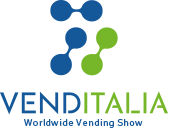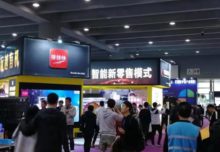
The coffee bar boom continues unabated — and not just in Germany. This dynamic development is benefiting both large chains and small entrepreneurs whose coffee bars have become popular meeting places everywhere from business districts to trendy neighbourhoods. But are coffee bars a competitive threat to the vending sector?
Not at all! The reason is that these establishments thrive on a “counter culture” — patrons get their beverages at a bar from staff knowledgeable in coffee (“baristas”). The shops are also attractive because they offer a “coffee house atmosphere”. Vending experts, on the other hand, can be found wherever coffee is in demand but there are no possibilities to set up a staffed bar — e.g. at small or medium-sized service facilities or in enclosed spaces and institutions like hotels and office buildings. Interested parties can become acquainted with the new generation of self-service coffee machines at Eu’Vend — The International Trade Fair for the Vending Industry, which will take place from 8th-10th September 2011 in Cologne. This year’s event also marks the first time Eu’Vend will take place in conjunction with coffeena — The International Coffee Fair.
Most recently, the vending sector has been able to close the supply gap with self-service coffee bars. The high-end technology used for piston coffee brewers is a must here when it comes to serving original specialties like cappuccino, macchiato and café crème. This type of equipment has been a staple for vending suppliers for quite some time, having also firmly established itself within the professional vending machine sector roughly seven years ago. The presentation focus now is on outlet systems that blend in nicely with surrounding furniture and interior designs, as the self-service sector also seeks to present itself in an ideal and homogenous manner in accordance with catering-sector standards.
A good example of this comes from Austria, where the international beverage and snack caterer café + co has opened a self-service coffee bar with a great atmosphere in the Q19 Döbling Shopping Center. Four terminals at the facility dispense “automatically the best coffee” for just one euro per cup. The coffee bar also has a very effective marketing slogan, referring to itself as “The 1 Euro Coffeehouse.” There’s attractive brand placement as well in the form of a fifth vending machine — a Milka chocolaterie. In just the first two weeks after it opened, more than 7,000 people used the new coffee bar to take a break from their shopping. The well thought-out colour concept in a stylish black and white, and the inviting rattan armchairs, no doubt had a positive effect as well. The self-service coffee bar at Ingolstadt Hospital has also been a big attraction since it opened. café + co set up this enclosed facility as well, which is located in the hospital lobby and used by relatives and visitors. The focus on selfservice is underscored by a food-service mix that along with coffee also includes cold beverages and snacks. Here as well, pleasant black and white designer armchairs set the tone and help create a quiet zone where people can relax. It’s available 24 hours a day — something important in a hospital.
Self-service coffee and refreshments are also the rule of the day at the newly renovated Deutsche Bank twin towers in Frankfurt, which reopened in November 2010 and are now among the most environmentally friendly skyscrapers in the world. Self-service lounges on the towers’ individual floors are arranged as areas where workers can chat, sit at counters or in seating areas, use water coolers, and purchase coffee from machines, which number 71 at the facility. The exceptional aspect of these machines at Deutsche Bank is that all 71 of them are equipped with a 9.5-liter milk cooler that ensures coffee specialties of extremely high quality. The bank’s employees consume 500 litres of milk per day, whereby the lion’s share is accounted for by the lounges and the central self-service coffee bar in the employee restaurant. To avoid having to constantly check the milk coolers, the machines are telemetrically monitored, something never before seen in the fully automated coffee vending sector. Sensors in the coolers digitally register milk levels in each machine; the data is transmitted to a central computer operated by the operation manager, whose team can then go into action before the milk runs out. It’s process optimization par excellence — thanks to intelligent vending.
Douwe Egberts Coffee also utilized an automated self-service approach while developing its all-new “Coffee Stop” concept. This compact, multifunctional piece of stationary furniture is designed for small or well frequented areas in which a clearly visible coffee machine is required. The unit is ideal for use at decentralized locations in companies, offices and institutions or commercial facilities such as filling stations. The Hotel Park Inn in Mannheim uses the same self-service system to accommodate its guests — among other ways by making it available in their hotel rooms. The highlight of this new series is “Coffee Adventure” — the first circular self-service coffee machine, whose hub design alone is guaranteed to generate sales.
This strategy has also been employed very successfully by the Thalia bookstore in Regensburg since 2010. The unit there is so popular in fact that the selfservice coffee bar is now listed as an insider tip by the Qype userrecommendation blog. Thalia offers customers 1,600 m² of space to relax and browse through books and magazines. The bookseller’s website describes the area as follows: “We offer you a great selection of books, expert service, and an atmosphere that’s sure to make you feel good — complete with a self-service cafe and reading sections with comfortable chairs, not to mention several computers for surfing the Web.” A self-service coffee bar as a marketing instrument and distinguishing characteristic? Absolutely. This also seems to be what filling station owner Jörg Kausch in Salzwedel was thinking when he decided to feature his self-service coffee bar with a seating area on his website. Nescafé is also focusing on the “pleasure factor” with “coffee islands” that “speak all the languages of coffee” and provide an option for self-service bars. Nescafé happens to be a company that was well ahead of its time with its “allin- one coffee bars” in 2001, and it was also one of the first firms to inspire the vending industry with completely self-service units.
Sometimes good old-fashioned experience is all it takes to come up with the right solution. Things didn’t go so well in the beginning at the “Future Store” operated by the Real supermarket outlet in Tönisvorst: The bistro area was set up to allow customers to take a break and grab a cup of coffee directly in the supermarket while shopping — but nobody wanted to use it. Management then moved the bistro right next to the Fresh & Convenience Foods section and made available to shoppers a self-service coffee bar that offers all kinds of specialties, from cappuccino to latte macchiato. The break area is also a hotspot where customers can use a supermarket PC or their own laptop to surf the Web. Younger “customers” especially like the interactive table equipped with “Living Surface” software: The kids simply touch the table and a fascinating world of games opens up for them. This example shows that the vending machine industry is completely in tune with the multimedia times.
Eu’Vend + coffeena will take place from Thursday, 8th September to Saturday, 10th September 2011, and is open only to trade visitors.
Dates
Eu’Vend and coffeena
Thursday, 8th September to Saturday, 10th September 2011
Further information is available at:




